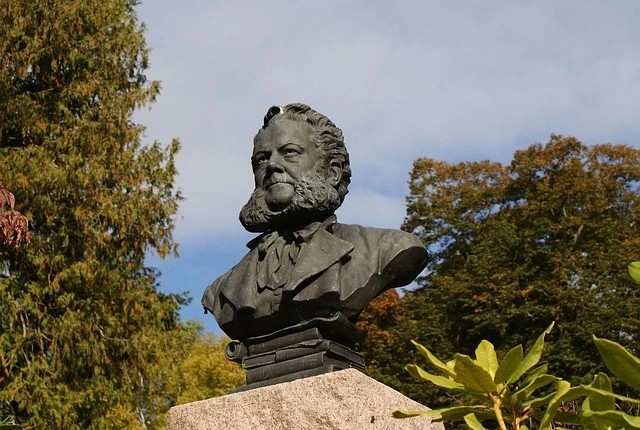Greek drama is one of the most ancient and influential types of theatre. It developed from the ancient Greek religious celebrations that honoured the gods and heroes of Greek mythology. Greek drama is thought to have originated in the sixth century BCE, when the poet Thespis is credited with introducing the first actor to engage in dialogue with the chorus. The chorus was a group of singers and dancers who offered commentary on the action and conveyed the mood of the audience as a whole.
Greek drama was divided into two main genres: tragedy and comedy. Tragedy deals with serious themes such as fate, justice, morality, and human suffering. The protagonists of tragedy were usually noble and heroic figures who faced a tragic downfall due to their flaws or errors. Some of the most famous Greek tragedians were Aeschylus, Sophocles, and Euripides, who wrote plays such as Oedipus Rex, Antigone, and Medea. Comedy, on the other hand, was a lighter and more humorous form of drama that mocked and ridiculed the follies and vices of society. The master of comedy was Aristophanes, who wrote plays such as The Clouds, The Birds, and Lysistrata.
Greek drama was performed in open-air theatres called amphitheatres, which could accommodate thousands of spectators. The actors wore masks and costumes that indicated their characters’ gender, age, status, and mood. The masks also helped to amplify their voices and expressions. The male actors played multiple roles by changing masks and costumes. The stage was usually a simple platform with a few props and scenery. The main focus was on the actors and the chorus’s words and actions.
Greek drama profoundly impacted the culture and literature of ancient Greece and beyond. It reflected Greek society’s values, beliefs, and conflicts and explored universal, relevant themes. It also influenced the development of other art forms, such as poetry, music, sculpture, and painting. Greek drama is considered the foundation of Western theatre and drama, and many modern playwrights and directors have adapted or been inspired by the works of Greek dramatists.
You can read about Medieval English Literature in the following post:
Development of Greek Comedy
The sixth century BCE witnessed the inception of Greek comedy, and the fifth and fourth centuries BCE marked the height of its prosperity. It was a popular and influential form of entertainment that poked fun at various aspects of Greek society, politics, philosophy, and culture. The origins of Greek comedy are not well known, but some possible sources are the phallic songs sung during Dionysiac festivals, the poems of Archilochus and Hipponax that contained crude and sexual humour, and the activity of men dressing as and mimicking others, as seen on pottery decorations. The first recorded comic poet was Susarion, from Megara, in the late sixth century BCE.
Traditionally, Greek comedy is separated into three periods: Old, Middle, and New. Each period had its own characteristics and conventions, but they all shared some common elements, such as the use of masks, costumes, choruses, and stock characters. Greek comedy was a vital part of ancient Greek theatre and culture. It entertained the audience and challenged them to think critically about their society and themselves. It also influenced many later forms of comedy in Western literature and drama.
Old comedy was the earliest and most radical form of Greek comedy. It is best represented by the works of Aristophanes, who wrote 40 plays, of which 11 survive. His plays are known for their political satire, sexual and scatological innuendo, fantastical plots, and direct address to the audience. He lampooned many prominent figures and institutions of his day, such as Socrates, Cleon, Euripides, and the Peloponnesian War. Some of his most famous plays are The Clouds, The Frogs, The Birds, and Lysistrata.
Middle Comedy was a transitional phase between Old and New Comedy. It is largely lost, except for some fragments by authors such as Athenaeus. It is generally considered less political and more literary than Old Comedy. It also reduced the role of the chorus and avoided direct impersonation of public figures. It focused on general topics such as social life, education, religion, mythology, and parody.
The New Comedy was the final and most refined form of Greek comedy. Menander, who wrote over 100 plays but only one (The Grouch) has survived in its entirety, is primarily responsible for representing it. His plays are known for their realistic and domestic settings, romantic and sentimental plots, complex characters, and moral themes. He influenced later writers such as Plautus and Terence in Rome and Shakespeare and Molière in Europe. Some of his most famous plays are Dyskolos (The Grouch), Samia (The Girl from Samos), Epitrepontes (The Arbitrants), and Perikeiromene (The Girl with Her Hair Cut Short).
The Development of Greek Tragedy
Greek tragedy is one of the most influential and enduring forms of drama in the history of Western theatre. As a part of religious celebrations honouring Dionysus, the god of wine and ecstasy, it was first performed in ancient Greece and later brought to open-air theatres. The word “tragedy” is derived from the Greek “tragedian,” which means “song of the goats,” referring to the chorus of satyrs that accompanied the first performances.
Scholars still debate the origins and evolution of Greek tragedy, but some of the main sources of information are the works of the three great tragedians: Aeschylus, Sophocles, and Euripides, who lived and wrote in the 5th century BCE. Their plays are based on myths and legends from the oral traditions of archaic Greece, but they also explore themes of human nature, morality, justice, fate, and the gods.
Greek tragedy is credited to Aeschylus as its founder, as he introduced the second actor, allowing for dialogue and conflict between characters. He also expanded the role of the chorus, which commented on the action and expressed the collective emotions of the audience. Some of his famous works are The Oresteia, a trilogy about the curse of the House of Atreus, and Prometheus Bound, about the suffering of the Titan who gave fire to humanity.
Sophocles is regarded as the most accomplished of the Greek tragedians, as he added the third actor, increasing the complexity and variety of the plot. He also reduced the size and importance of the chorus, focusing more on individual characters and their psychology. Only seven of his more than 120 plays have survived. , including Oedipus Rex, about the king who unknowingly killed his father and married his mother, and Antigone, about the conflict between civil and divine law.
Euripides is known as the most modern and innovative of the Greek tragedians, as he challenged the conventions and expectations of his genre. He often portrayed his characters as realistic and flawed human beings rather than heroic and idealized figures. He also explored controversial topics such as gender roles, social justice, religion, and war. Some of his notable works are Medea, about the revenge of a betrayed wife who kills her children, and The Bacchae, about the clash between rationality and irrationality in the cult of Dionysus.
Greek tragedy profoundly impacted the development of Western theatre and culture. It influenced the theatre of ancient Rome and the Renaissance and modern drama, literature, philosophy, and psychology. The themes and questions raised by Greek tragedy are still relevant and compelling today, as they reflect on universal aspects of human existence.
The history of Greek drama is not only a history of artistic creation but also a history of social and political change. Greek drama evolved in response to the historical events and circumstances that shaped the lives of the Greeks. For example, the rise and fall of Athens as a democratic city-state influenced the themes and styles of tragedy and comedy. The Persian Wars inspired patriotic plays that celebrated the Greek victory over the foreign invaders. The Peloponnesian War led to a decline in the quality and quantity of drama and a loss of civic spirit and moral values. The conquests of Alexander the Great opened up new cultural horizons for the Greeks but also challenged their identity and traditions. The Hellenistic period saw a revival of comedy and a decline in originality and innovation. The Roman domination marked the end of Greek drama as an independent and creative art form.





Leave a comment